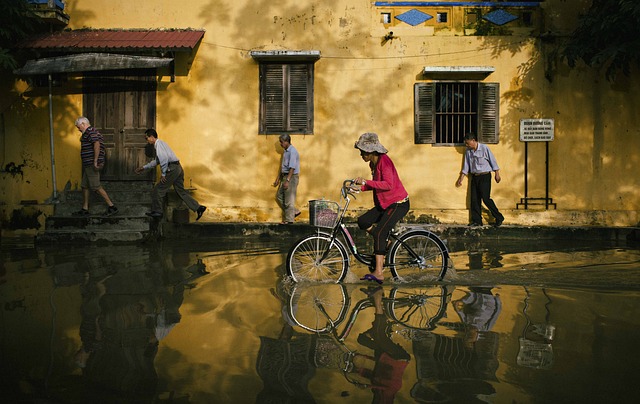Economic costs of weather-related disasters soars but early warnings save lives, according to World Meteorological Organization.
- May 29, 2023
- Posted by: Sinead Sprigg
- Category: Environmental, Global, Water Issues, North America

According to the World Meteorological Organization (WMO), extreme weather, climate, and water-related events caused 11,778 reported disasters between 1970 and 2021. These disasters resulted in over 2 million deaths and economic losses amounting to US$4.3 trillion. Despite the significant economic losses, improved early warning systems and coordinated disaster management have helped reduce the human casualty toll over the past 50 years. However, over 90% of reported deaths occurred in developing countries.
The United States alone accounted for 39% of global economic losses, totaling US$1.7 trillion over the 51-year period. Least Developed Countries and Small Island Developing States experienced disproportionately high costs relative to the size of their economies. In relation to the GDP of developed economies, economic losses from weather-related disasters were less than 0.1% in over 80% of cases, while in Least Developed Countries, some disasters caused losses up to nearly 30% of their GDP.
To address these challenges, the World Meteorological Congress, WMO’s top decision-making body, convened a high-level dialogue on accelerating and scaling up action to ensure that early warning services reach everyone on Earth by the end of 2027. The United Nations Early Warnings for All initiative, which aims to protect every person through early warning systems, is one of the top strategic priorities to be endorsed at the congress.
The vulnerability of the most marginalized communities is emphasized, with severe weather events disproportionately affecting them. The devastating impact of cyclonic storm Mocha in Myanmar and Bangladesh is cited as an example. In the past, these countries experienced death tolls in the tens or even hundreds of thousands, but thanks to early warnings and disaster management, such catastrophic mortality rates are now significantly reduced.
The WMO compiled these figures as an update to its Atlas of Mortality and Economic Losses from Weather, Climate, and Water Extremes, covering the period from 1970 to 2021. The report reveals that economic losses increased over time, primarily attributed to storm-related disasters. However, recorded deaths in 2020 and 2021 showed a decrease compared to the previous decade’s average.
The report also provides regional breakdowns of the reported deaths, disasters, and economic losses. Africa experienced 1,839 disasters with 733,585 deaths and US$43 billion in economic losses, with droughts accounting for 95% of reported deaths. Asia accounted for 3,612 disasters, 984,263 deaths, and US$1.4 trillion in economic losses, with tropical cyclones being the leading cause of deaths. South America had 943 disasters with 58,484 deaths and US$115.2 billion in economic losses, primarily due to floods.
North America, Central America, and the Caribbean saw 2,107 weather-related disasters resulting in 77,454 deaths and US$2.0 trillion in economic losses. The South-West Pacific region experienced 1,493 disasters with 66,951 deaths and US$185.8 billion in economic losses, with tropical cyclones being the leading cause of death. Europe recorded 1,784 disasters causing 166,492 deaths and US$562.0 billion in economic losses, with extreme temperatures and floods being the leading causes.
The report concludes with a focus on the “Early Warnings for All” initiative, championed by UN Secretary-General António Guterres. The goal is to ensure that every person on Earth is protected by early warning systems by the end of 2027. While early warning systems have proven to be effective climate adaptation measures with a tenfold return on investment, only half of the countries currently have such systems in place, and coverage is particularly low in Small Island Developing States, Least Developed Countries, and Africa.
